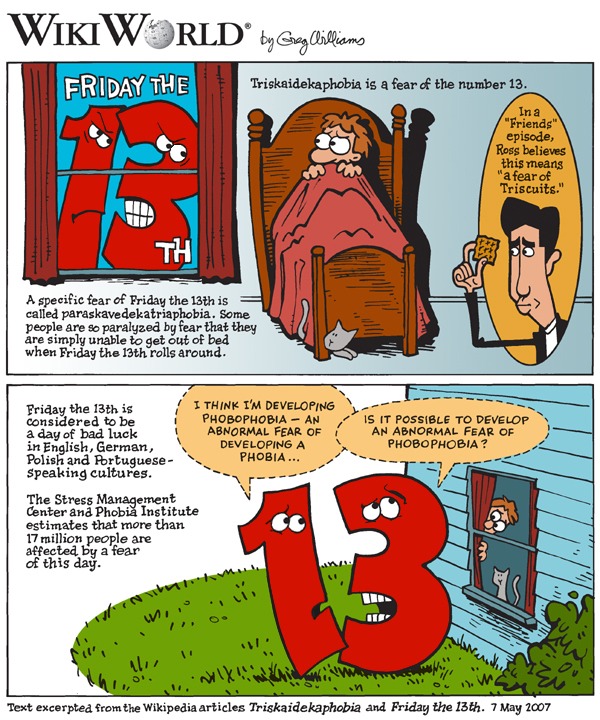
This Friday is the 13th! For non-believers, it is just the start of a well-deserved weekend. However, the millions of people who suffer from "paraskevidekatriaphobia" consider Friday the 13th the unluckiest day of the year. No one knows how the day got its fearsome reputation. But experts have some theories.
The superstition starts with the fear of the number 13. The condition is called "triskaidekaphobia." Thomas Fernsler, an associate policy scientist at the University of Delaware, believes the apprehension is because 13 follows the "complete" number 12. There are 12 months in a year, 12 zodiac signs, 12 tribes of Israel, 12 apostles of Jesus, and so on. Hence, the number that follows is considered "incomplete" and, therefore, unlucky.

Donald Dossey is a folklore historian and author of Holiday Folklore, Phobias, and Fun. He attributes the fear of 13 to a popular Scandinavian legend. Twelve gods were enjoying a quiet dinner when Loki, the trickster Norse god, arrived. He provoked Hoder, the blind god of darkness, to kill Balder, the god of joy and gladness. To this day, many people avoid inviting 13 guests to a party.
Friday's bad reputation is believed to be rooted in religion as well. According to the Bible, Jesus was crucified on a Friday. The date was not the 13th. But the execution occurred after the Last Supper, attended by Jesus and his 12 apostles. Judas Iscariot, the disciple said to have betrayed Jesus, was among them. Many biblical scholars maintain that Eve tempted Adam with the forbidden fruit on a Friday. The one historical event believed to have occurred on Friday the 13th is when Adam and Eve's son Cain killed his brother, Abel.

Those afraid of Friday the 13th experience different symptoms. They range from mild anxiety to complete panic attacks. Many people avoid going to work, traveling, or making big purchases. US businesses lose about $900 million on the dreaded date.
But the fears are unfounded. A 2008 study by the Dutch Centre for Insurance Statistics revealed that fewer traffic accidents occur on Friday the 13th than on other Fridays. The number of fires and thefts reported was also much lower.
For the brave, the day may prove to be extremely lucky. Retailers often offer big discounts to encourage people to shop. So this Friday the 13th, visit your favorite stores and treat yourself to a bargain or two.
Happy Friday the 13th!
Resources: ibtimes.com, wikipedia.org, businessinsider.com, Nationalgeographic.com
